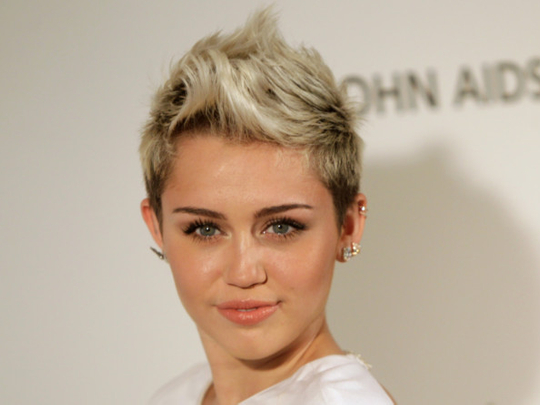
Some of Hollywood’s most glamorous stars are backing a boycott of Abercrombie & Fitch after the fashion retailer’s chief executive said it catered only for the thin and cool.
Mike Jeffries, 68, apologised but provoked more outrage when he reiterated that the chain’s clothes were for a “particular segment” of “aspirational” young people.
The once-bankrupt chain, which has revived its fortunes with glamorous advertisements and bare-chested male assistants who loiter outside its 1,000 stores, has been accused of discriminating against the overweight.
Last week the chat show host Ellen DeGeneres mocked the firm by pretending that some tiny doll clothes were its “double zero” size. She warned her 4 million viewers that the T-shirt might shrink in the wash.
Kirstie Alley, the former Cheers actress who has struggled publicly with her weight, said she was banning her two children from shopping at the chain. In an open letter to Jeffries, she tweeted: “You are not cute and your head is huge ... you need to stop wearing A&F clothing.”
The former Disney actress Miley Cyrus, 20, said she was going to burn her Abercrombie clothes “because they are stinking up my place”.
Cyrus was inspired by Greg Karber, a Los Angeles film maker, who scoured charity shops for discarded Abercrombie clothing and handed them to homeless people as a “brand readjustment”.
He said that the chain burnt returned clothes rather than donating them to charities as others do. “Together,” Karber said in a YouTube video, “we can make Abercrombie & Fitch the No1 brand of homeless apparel.”
The video has been watched 10 million times and has been endorsed by television celebrities including the talk show hosts Katie Couric and Rosie O’Donnell. It has prompted similar donations across the US.
In comments made seven years ago but quoted in a recent book, The New Rules of Retail, Jeffries admitted he was “absolutely discriminatory”.
He would not sell clothes to women larger than a size 10 (size 12 in the UK) and wanted “cool, good-looking people” to wear his brand, “because they attract other cool kids”.
Jeffries is credited with turning around a gentlemen’s outfitter that sold fishing rods to President Dwight Eisenhower and a shotgun to Ernest Hemingway. But the threat of a boycott has alarmed staff and shareholders.
Jeffries has weathered other storms. Female students objected to an Abercrombie T-shirt slogan that read: “Who needs brains when you have these?” However, last week a young assistant at a west Los Angeles shop said he was, for the first time, embarrassed to work for the chain. “Controversy is fun and our customers used to love it,” he said. “But the bosses let this get out of control. This is not cool. I’m telling my friends I work at Gap.”












